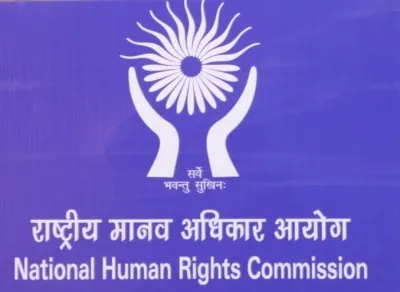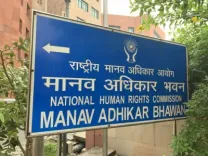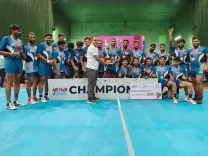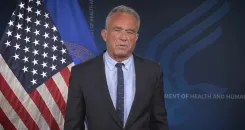Did the NHRC Act on the Rape and Murder of a 10-Year-Old Girl in Bihar?

Synopsis
Key Takeaways
- NHRC's suo motu action reflects its commitment to human rights.
- The case raises serious concerns about child safety in India.
- The accused has been arrested, showcasing a prompt police response.
- The NHRC demands accountability from state authorities.
- This incident highlights the urgent need for systemic change to protect children.
New Delhi, Sep 3 (NationPress) The National Human Rights Commission (NHRC) has initiated suo motu cognizance of a report about the tragic case of a 10-year-old girl who was allegedly raped and murdered by the caretaker of a garden in the Maner locality of Bihar’s Patna district.
As per the media report, the accused enticed the victim, who had gone to gather wood, with a guava and took her to a room adjacent to the garden, where he committed the heinous act. The girl was reported missing by her family on August 26, and her lifeless body was discovered two days later, on August 28, hanging from a tree in the inundated garden.
Upon reviewing the media report, the apex human rights authority noted that if the details are accurate, they raise grave concerns regarding human rights violations. The NHRC has served notices to the Bihar Director General of Police and the Patna District Magistrate, demanding a comprehensive report on the incident within two weeks, including details on any compensation offered to the deceased's family.
According to CCTV footage, the Bihar Police confirmed that the girl was both raped and murdered, and the perpetrator, Bhola Rai (48), has since been apprehended.
The NHRC, established under the Protection of Human Rights Act, 1993, is an autonomous statutory body that epitomizes India’s commitment to upholding and safeguarding human rights. Its main function is to protect and promote human rights, which encompass the rights related to life, liberty, equality, and dignity of individuals guaranteed by the Constitution or enshrined in international treaties enforceable by courts in India.
This apex body has the authority to take suo motu action based on media reports, public awareness, or other sources, regardless of receiving a formal complaint regarding human rights breaches.






